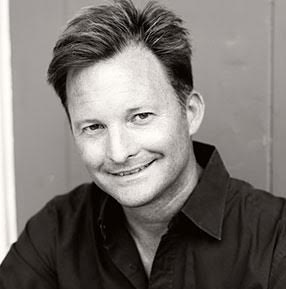Driving the Beast
In the thick brush
they spend the hottest part of the day,
soaking their hooves
in the trickle of mountain water
the ravine hoards
on behalf of the oleander.
You slung your gun
across your back in order to heave
a huge grey stone
over the edge, so it rolled, then leaped
and crashed below.
This is what it took to break the shade,
to drive the beast,
not to mention a thrumming of wings
into the sky,
a wild confetti of frantic grouse,
but we had slugs,
not shot, and weren’t after their small meat,
but the huge ram’s,
whose rack you’d seen last spring, and whose stench
now parted air,
that scat-caked, rut-ripe perfume of beast.
Watch now, he runs,
you said, launching another boulder,
then out it sprang
through a gap in some pine, brown and black
with spiraled horns
impossibly agile for its size.
But, yes, he fell
with one shot, already an idea
of meat for fire
by the time we’d scrambled through the scree.
And that was all.
No, you were careful, even tender,
with the knife-work,
slitting the body wide with one stroke
then with your hands
lifting entire the miraculous
liver and heart,
emptying the beast on the mountain.
Later, it rained,
knocking dust off the patio stones.
Small frogs returned
from abroad to sing in the stream beds.
We sat and drank.
The beast talked to its rope in the tree.
And then you spoke:
no more, you said, enough with mourning,
then rose to turn
our guts, already searing on the fire.
Copyright © 2017 by Christopher Bakken. Originally published in Poem-a-Day on July 19, 2017, by the Academy of American Poets.
“The hunt described here took place on a remote Greek island, where all events ring with elemental significance, and where a violent encounter with the landscape is more likely to break the deepest things open. My poem works in conversation with another poem of unforeseen discovery: Robert Frost’s ‘The Most of It.’ In ‘Driving the Beast,’ I acknowledge the debt by incorporating Frost’s own ironic monosyllables (his poem ends: ‘and that was all’). I think that line also led me to employ the 4/9 syllabic pattern, which now sends my poem tumbling down the page.”
—Christopher Bakken

